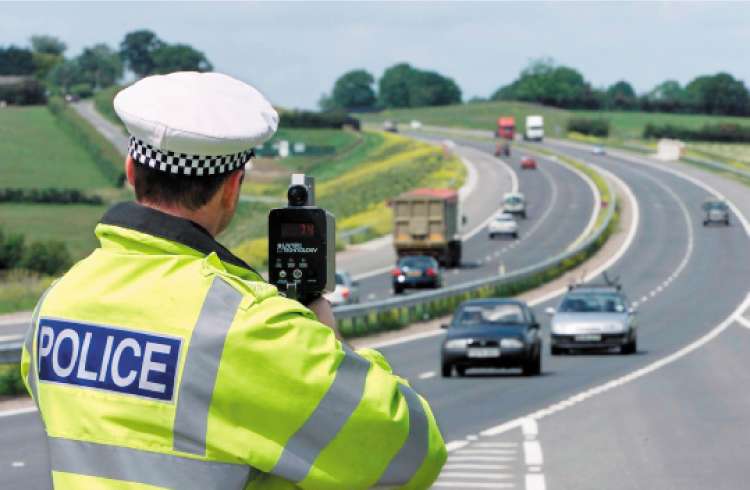How to get out of paying for fines
A speeding or parking ticket needn't cost the earth. It's always worth appealing, finds James Daley

Celebrities and dignitaries always seem to get off the hook when they get issued with a speeding ticket or parking fine. Last week, Andrew "Freddie" Flintoff – who was allegedly caught going at 87mph in a 50mph zone – became the latest sports star to have his speeding case thrown out of court because, as his lawyer was quick to point out, the notice of prosecution had not been issued within the specified time-limit. Case closed.
In fact, barely a week goes by where celebrity lawyer Nick Freeman, aka Mr Loophole, doesn't come to the aid of some star in a sticky situation.
But you don't have to be rich or famous to appeal a speeding or parking fine successfully. Speeding cameras are by no means infallible, and parking wardens all too often leave tickets on vehicles that were legally parked. So when a fine lands on your doormat, it's often well worth taking the time to challenge the decision.
Speeding
The best form of defence when it comes to speeding fines is, of course, not to get caught in the first place. These days there are numerous GPS devices on the market that will let you know where all the speed cameras are, and some will even detect radar guns being waved by policemen from the edge of the road.
However, if you do get a speeding ticket in the post, it's worth considering whether it was a fair cop, or whether you've been unfairly picked out. A few years ago, law student Steve Lucas successfully appealed a fine and a driving ban when he was accused of travelling at 115mph in his 1.2-litre Fiat Punto. He commissioned an independent expert to test his car's top speed, proving that it could not, in fact, go any faster than 104mph.
One of the first things to look out for when you receive your ticket is the Freddie Flintoff loophole. Tickets should be issued within 14 days of the speeding incident. Monica Jaimini, a lawyer at Which? legal services, says that if your ticket arrives any later than this, you should write back pointing out that the authorities are outside of this limit. In some cases, your ticket will be cancelled at this stage, although you may have to keep on fighting.
Another plausible basis for appeal is not knowing who was driving at the time of the ticket. Although the police are unlikely to be satisfied with a letter saying that you simply can't remember which member of your family was driving on the day in question, Jaimini says that this argument may hold water if you can provide a reasonable explanation as to why you can't be sure. For example, if you had been moving house, and several members of the family had driven in the same car down the same piece of road on the day in question, it could plausibly be difficult to nail down who was driving at a certain time of day.
However, the website nopenaltypoints.co.uk points out that, in theory, people who cannot (or will not) identify who was driving on a particular day could still face a fine of up to £1,000 and three points on their licence.
If you think the speed camera was inaccurate, Jaimini says that you are within your rights to request the calibration certificate of the camera in question, to check that it's been maintained and was working properly. If the authority cannot supply this, your appeal should be upheld.
Ultimately, if you are unsuccessful in your original appeal, you can go to court. However, Jaimini warns that you need to be aware of the potential costs if you lose, and the risk that you could end up getting a higher penalty and even more points on your licence if the case goes against you.
If you want more information on the many loopholes in driving penalties, there are a number of publications and websites such as www.uk-driving-secrets.com and www.speed-trap.co.uk. But you'll have to part with some of your hard earned cash to unlock these "secrets".
Parking
Barrie Segal of appealnow.com – a website that takes the stress out of challenging parking fines – says that councils admit that around 20 to 25 per cent of all parking tickets issued are cancelled. Segal says that, while councils often claim this demonstrates how reasonable they are when fines are appealed, he takes a different view: "If you ran a restaurant and poisoned one in four customers, you wouldn't be getting any stars from Mr F-word [Gordon Ramsay]."
Quite often parking bays aren't marked correctly, or there are no signs explaining the parking restrictions in a certain area. Segal says that if you get ticketed under these circumstances, it's important to take photos of the surrounding area to prove your case.
As of the end of March, it became legal for local authorities to send parking tickets out in the post, rather than having to leave them on your windscreen, but this doesn't change your right to appeal. If you're unsuccessful with your original appeal, you can take your case to the Traffic Penalty Tribunal at www. trafficpenaltytribunal.gov.uk.
"One very senior council official admitted to me that cases are only really ever looked at properly once the matter gets to the level where it's about to go to the adjudicator," adds Segal. So it's a good idea to persevere if you're not successful at first.
Join our commenting forum
Join thought-provoking conversations, follow other Independent readers and see their replies
Comments
Bookmark popover
Removed from bookmarks